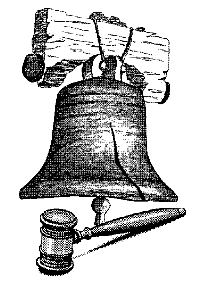This possibility should not be discarded without consideration. Twenty years is certainly a sufficient amount of time for views -- even those that may be fundamental to an individual's personal ideology -- to change in response to new stimuli and novel experiences. In fact, it would be difficult to imagine that McDonnell has not adjusted at least some of these beliefs. Though Democrat Creigh Deeds and his campaign team protest that McDonnell is attempting to hide his background in order to appear to be a more moderate candidate (a claim that may in fact have some validity), it would be impossible for McDonnell to maintain even that charade without actually having abandoned some of the more alarming beliefs contained in the paper.
Moreover, the very idea of exploiting a graduation thesis as a political tool many years after it is published seems inherently problematic. While it is true that McDonnell left Regent University at the age of 34 and would be more likely to have been confirmed in his beliefs than a younger graduate, the special qualities of universities that encourage imagination, innovation, and playful engagement with complicated topics advise against the immediate assumption that his thesis is an accurate portrayal of the man McDonnell is today.
All of this, of course, assumes that Regent University (formerly known as CBN University) is a typical academic environment that advocates individual thought and intellectual rigor as its primary goals. This is far from assured. As a school that was founded by the infamous Pat Robertson, and which proudly displays the motto "Christian Leadership to Change the World," it is hard to accept a priori that Regent does not educate students to place Judeo-Christian values before their intellectual pursuits. While religion and academics are by no means incompatible, excerpts from McDonnell's paper that harshly criticize feminists, working mothers, homosexuals, and 'fornicators' call into question how rigorous his analysis was actually encouraged to be.
Universities should never -- indeed must never -- be dissuaded from encouraging students to explore ideas and beliefs that run counter to norms and commonly accepted truths about society, culture, morality, etc., but it is also their responsibility to instill in their students a sense of responsibility that demands fidelity to honest academic standards. In other words, they must teach their students that they cannot simply 'make it up.' Such shoddy pseudo-scholarship leads to beliefs that are based on a false sense of rationality. More importantly, this type of work frequently unfairly maligns or disadvantages minority groups, and provides perverted justifications for personal prejudices. For example, as recently as 2003, McDonnell was "widely quoted" as having expressed the belief that homosexual activity cast doubt on a person's qualifications to be a judge. This is disturbingly close to the assertions found in his thesis.
Exploring old, new, and even stigmatized avenues of inquiry is how we move forward together as a nation. Avoiding challenges, blaming others in society, or failing to truly examine our own ideologies is how we fall back. Rob McDonnell has rightly distanced himself from many of the offensive remarks in his thesis, and he should not be judged prematurely on the basis of what he said as a student 20 years ago. This ordeal should, however, serve to highlight the importance of education and true academic discovery in our society. Without it, academic research is about as useful as Pat Robertson's premonitions.

No comments:
Post a Comment